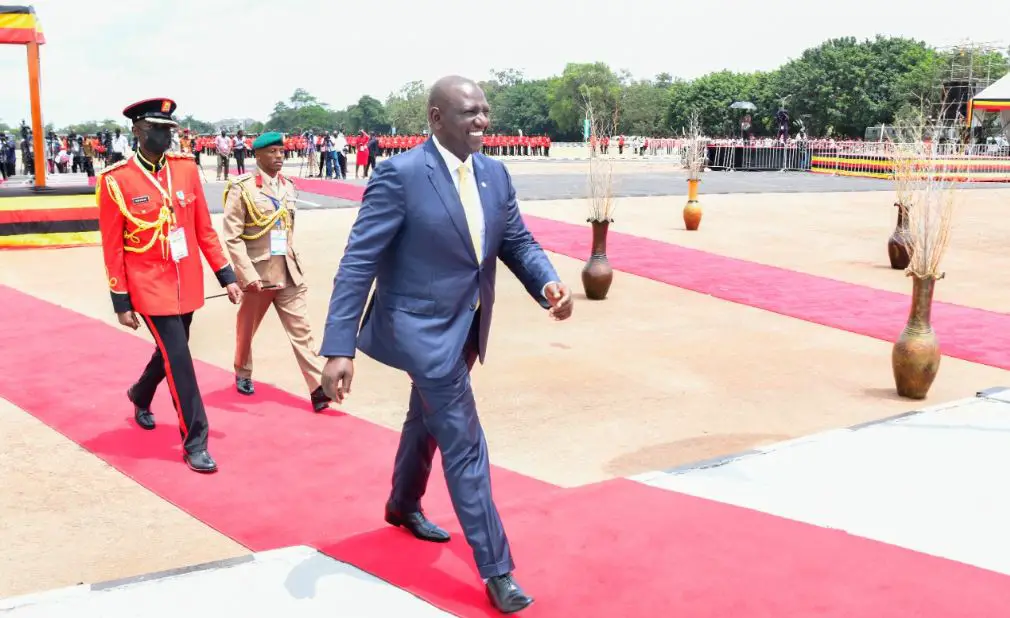East Africa Community Member states have for over a decade been struggling to wipeout barriers that impede trade across the bloc. Host governments seem to view the Common Market Protocol differently.
EAC Partner States signed the Protocol in November 2009, and it came into force on 1 July 2010 seeking to progressively transform into a single market that allows for free movement of goods, persons, services, labour and capital while guaranteeing rights to residence and establishment.
However, much of this remains largely on paper as some countries have shut their borders preventing any movement of people from their neighbours.
President William Ruto of Kenya has revived the discussion on this contentious subject of Common Market.
“It is our place as leaders and citizens of the EAC region to work together so that we can transform our borders which today stand out as barriers and convert them to bridges so that goods, services and people can move across East Africa without any impediments,” Ruto said while addressing Ugandans at their 60th independence celebrations in the capital Kampala on Sunday.
However, his predecessor Uhuru Kenyatta triggered deep disagreement when he blocked Ugandan eggs, maize, milk and sugar including other agriculture items from accessing the Kenyan market.
Now Ruto who is just fewdays in office said he had directed the Kenyan Cabinet Secretary of Trade to work with his Ugandan counterpart in facilitating Uganda to join Kenya in the Cohort of Eight African countries that have opted to trade together under the guided trade initiative of the AcFTA.
Another controversial leader, President Evariste Ndayashimiye whose country, Burundi, maintains a closed border with Rwanda since 2015 following a diplomatic row is calling for doubled efforts towards integration of the region.
“My dearest wish is to see an integrated East Africa and a united Africa,” President Ndayishimiye said during the Uganda independence celebration in Kampala.
According to the Burundian authorities the only obstacle remaining is the issue surrounding the alleged perpetrators of the attempted coup in Burundi in 2015.
Burundi demands that the alleged suspects, currently living in exile in Rwanda, be handed over before normal relations are resumed.
Meanwhile, in February 2019, Kigali regime ordered the borders with Uganda be shut until further notice. Three years after trading very tempting statements, and mediated talks, the border was reopened.
However, although people are travelling across the border, traders from Rwanda still complain of various barriers and restrictions in bringing in Ugandan manufactured commodities.
“When the border opened, i traveled to Uganda to purchase commodities to add in my shop, but when i reached the customs, i had to abandon the commodities there because the taxation was exorbitant,” says Mutabaruka Emma, a trader based in Gatsibo district.
Kigali and Kampala slid into tension over rival accusations of espionage and political meddling.
Rwanda accused Uganda of abducting its citizens and supporting rebels seeking to topple Kagame.
Uganda in turn accused Rwanda of spying as well as killing two men during an incursion into Ugandan territory in 2019.
President Ruto of Kenya seems to have a solution to this Common Market challenge. According to him, there needs to be a patron to guide the member states into fully realising the intergration.
He asked President Yoweri Museveni to lead the charge in ensuring that the EAC becomes a borderless regional bloc.
He said: “You have the age and you have the experience, take the responsibility and lead the charge.”
Ruto said the EAC should lead the way towards the realisation of the African Continental Free Trade Area (AfCFTA).




















